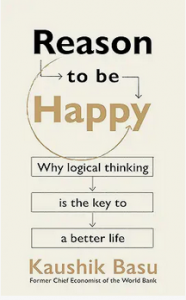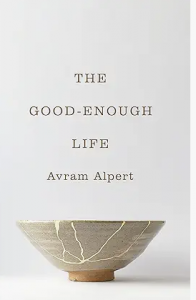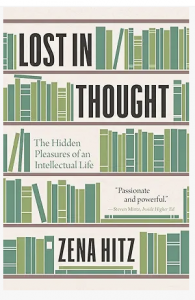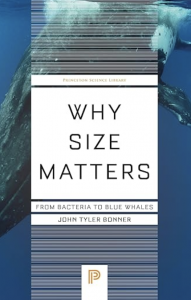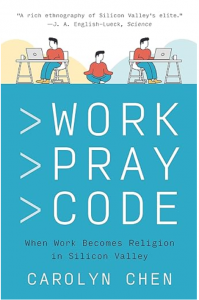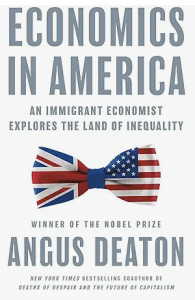I loved Kaushik Basu’s new book, Reason to be Happy: Why logical thinking is the key to a better life. Mind you, I love most everything he writes. It’s always incredibly thought-provoking. His Republic of Beliefs is one of the books I recommend to almost everyone.
Reason to be Happy is not so much about logical thinking, although a constant theme is the advice not to waste emotional energy on things one can’t influence. I’d have used the word ‘strategic’ rather than ‘logical’. The book is an accessible and highly readable guide to using game theory both in personal or business life, and in policy. It has always amazed me how unstrategic so many people are, in the simple sense of not thinking about how other people will react to an action or statement. This is just as true of policymakers in government as business executives. Policy effectiveness would improve enormously from applying a game theoretic perspective at least as much as from behavioural insights. (I remember once in a meeting *of economists* pointing out that a certain set of decisions around the EU was the Nash equilibrium so why would we choose another course of action in the UK, and jaws around the table dropped. We chose the equilibrium strategy…)
Anyway, Reason to be Happy makes the practical sense of game theory very clear and gives loads of examples of games modelling situations in life. It also has a strong philosophical thread running through it, a kind of stoicism that the author describes as ‘determinism’. I particularly liked two sections. One describes how collective outcomes can deliver worse results for ‘bystanders’ to the game (such as future generations in the context of environmental impacts) even when some or even all of the players have highly moral motivations. This is due to each player’s payoffs and therefore strategies being altered when other players internalise the payoffs of the bystanders. The book labels this ‘Greta’s Dilemma’: moral intentions do not always lead to moral outcomes. The book also describes the obverse, ‘guilt shelters’, complex decision structures that enable individuals to avoid responsibility for bad outcomes; we are all too familiar with this in the case of corporations. (See also the excellent forthcoming book by Dan Davies, The Unaccountability Machine).
The other section I would pick out here in Reason to Be Happy is the one on the paradox that non-rational behaviour can be rational: the example here is labelled ‘the Traveller’s Dilemma’. Two travellers ask their airline for compensation for damage to an identical item. The airline proposes that each writes down a number between 2 and 100 as their estimate of its value. If they choose different numbers, the one with the lower figure gets that amount plus $2 and the other gets the same figure minus $2. The Nash equilibrium is that each writes down $2, assuming that each knows the other is rational: if one were to write $100, they could reason that claiming $99 instead would give them $101. But the other will know this and undercut them with $98 – and so on back to $2. Now, it is easy to see this is not in fact rational and that both players will see this. “The paradox in the reasoning remains unresolved,” Basu writes. I first came across something similar in Ariel Rubinstein’s wonderful Economic Fables. I suspect the resolution lies in the ambiguity of the word ‘rational’: formal logic versus contextual sense-making.
Reason to Be Happy is a lovely read. Its author points out in can be dipped into in chapter-sized chunks. It won’t turn its readers into stoics (or determinists) but might well spread strategic thinking.

